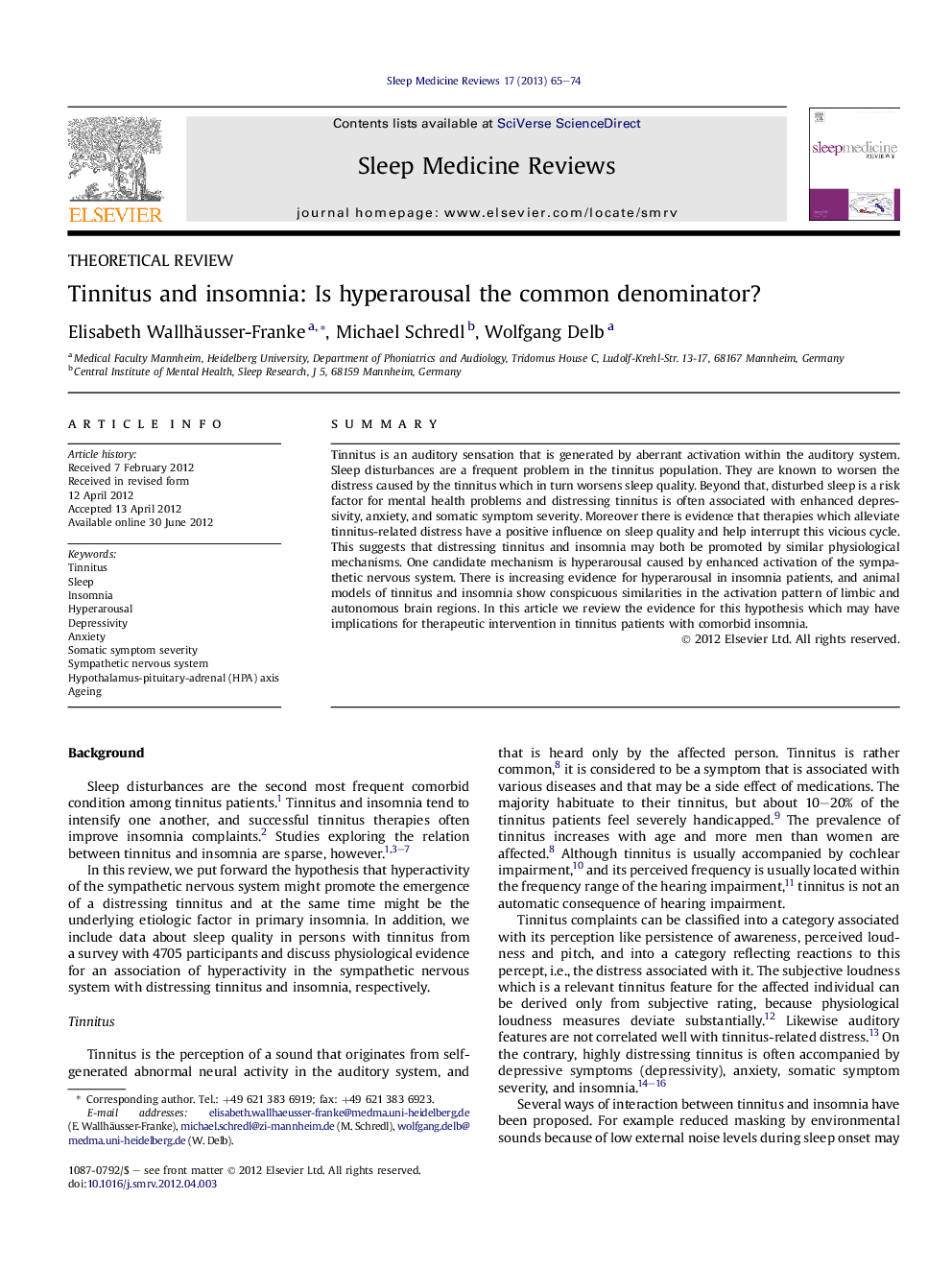| Article ID | Journal | Published Year | Pages | File Type |
|---|---|---|---|---|
| 3091465 | Sleep Medicine Reviews | 2013 | 10 Pages |
SummaryTinnitus is an auditory sensation that is generated by aberrant activation within the auditory system. Sleep disturbances are a frequent problem in the tinnitus population. They are known to worsen the distress caused by the tinnitus which in turn worsens sleep quality. Beyond that, disturbed sleep is a risk factor for mental health problems and distressing tinnitus is often associated with enhanced depressivity, anxiety, and somatic symptom severity. Moreover there is evidence that therapies which alleviate tinnitus-related distress have a positive influence on sleep quality and help interrupt this vicious cycle. This suggests that distressing tinnitus and insomnia may both be promoted by similar physiological mechanisms. One candidate mechanism is hyperarousal caused by enhanced activation of the sympathetic nervous system. There is increasing evidence for hyperarousal in insomnia patients, and animal models of tinnitus and insomnia show conspicuous similarities in the activation pattern of limbic and autonomous brain regions. In this article we review the evidence for this hypothesis which may have implications for therapeutic intervention in tinnitus patients with comorbid insomnia.
